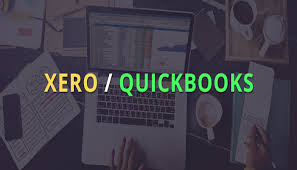There are seemingly countless management training tools to choose from. Consider these top management training tools before picking random ones out of frustration or lack of time. Your organization’s needs and resources will determine which is best. This article explains how time, project, and risk management training tools work and includes a mindtools leadership quiz. All the tools in this overview have a free version you can try out.
Time Management Training Tools
If you juggle deadlines, resources, and deliverables, you may benefit from time management training tools. We reviewed the best time management training tools for you and your team.
#1. Scoro
Scoro gives you all the tools you need for efficient time management training, including time tracking, billing, work reporting, and project and task management.
Highlights:
- Track actual and billable time and invoice the hours.
- Automate late invoice reminders and recurring billing.
- Send clients hourly invoices.
- Client, project, and task management
- Work, sales, budgets, etc. reports.
Scoro combines time tracking, project management, and CRM to improve collaboration and streamline business processes.
- Pricing: From $26 user/month
#2. ActiveCollab
ActiveCollab combines time billing and project management to track creative projects. This tool facilitates teamwork and real-time communication.
Highlights:
- Creating multi-user, deadline-driven tasks
- Users, dates, and labels filter tasks
- Gantt-style plan
- Team collaboration calendar
- Time and billing
ActiveCollab improves and simplifies team collaboration. Users can quickly personalize their platform with a custom theme.
- Pricing: From $25/month for 5 users
#3. ProofHub
This is one of the time management training tools available. ProofHub is a project management system used by NASA, Disney, and Taco Bell. This all-in-one tool eliminates the need for too many business tools.
Highlights:
- Online proofreading saves time when sharing feedback.
- Reduces team task stress
- ProofHub’s Gantt charts visualize projects.
- Pricing: From $45/month
#4. Clarizen
Clarizen’s cloud-based project management software helps businesses advance.
Highlights:
- Multiple projects
- Automated alerts, workflows, and processes
- Collaboration
- Management & spending
Clarizen has configurable workflows, so you can adapt them to your company’s needs.
- Pricing: From $60 user/month
#5. Harvest
Harvest is one of the best time and billing tools on the market. Harvest’s simple interface and light feature set make time tracking and billing easy.
Highlights:
- Time-based estimates and invoices
- Web, Mac, iPhone, and Android time tracking
- Time tracking across all project management tools
- Real-time time logs
Harvest does one thing well.
- Pricing: From $12 /month + $10/month for each additional user
#6. Toggl
Toggl is no hassle time tracking software that integrates with tens of project management tools. It helps you be more productive throughout the day by enhancing your existing tools.
Highlights:
- Unlimited sub-projects for time tracking
- Progress reports
- Time tracking online/offline
Toggl integrates seamlessly with your favorite productivity tools like Trello, Scoro, or Asana.
- Pricing: From $9 user/month
#7. Replicon
Replicon is a multi-feature solution that helps companies track work time and bill clients.
Highlights:
- Time tracking and time sheets
- Different user rates
- Project and budget management
- Time-usage analytics
Replicon appeals to large companies looking to better manage employee time. The tool tracks every working minute.
- Pricing: From $20 user/month
#8. Timecamp
Timecamp tracks time to bill clients, measure project profitability, and pay employees.
Highlights:
- Automatic billable/non-billable time tracking
- Payment integration fails
- Time or saving
- Reporting strength
- Mobile/desktop apps
Timecamp makes billing clients and calculating time-based income easy.
- Pricing: Free Solo plan (one user), from $6 user/month for larger teams
Project Management Training Tools
This section explains how project management training tools work, their pros and cons, and their prices.
#1. Trello
Trello is popular in project management training tools. Visually appealing, it uses cards, lists, and boards. Trello is a free, flexible, visual way to manage and organize projects, used by millions worldwide.
Pros
- When you open your board, the project information is right in front of you, from the due date to the team’s comments.
- Trello has easy-to-guides and free templates created by managers and CEOs to help you get started with project management software. They update and share helpful blog content on management, remote work, and productivity.
- Power-ups let you keep using the tools you already like.
Cons
- Some users who prefer structure in their work applications may struggle with flexibility and customization. Too many options can confuse people.
- Trello lacks report capabilities.
Price
This free project management tool includes unlimited personal boards, ten team boards, and automation. Business Class costs $9.99 per month per user and allows 250MB of attachments. Enterprise is for larger teams.
#2. Asana
Asana is a great project management tool for organizing a team. Furthermore, Asana helps teams manage small projects and strategic initiatives. Over 60,000 paid customers in 195 countries.
Pros
- The tool offers guides, videos, and forums.
- This choice emphasizes tracking.
- Asana manages projects with to-do lists.
Cons
- Compared to other project management software, Kanban is limited.
- The tool lacks security.
Price
Basic, Premium, Business, and Enterprise are Asana’s tiers. Each tier adds project management features. Premium costs $10.99 per user per month and includes a timeline, private teams, and projects. The business adds Adobe Creative Cloud integration and portfolios for $24.99/month/user. For pricing on Enterprise, contact them directly.
#3. Basecamp
Basecamp is a veteran of project management training tools and a reliable tool for large projects. It’s good for tried-and-true software. Basecamp boosts productivity. This tool makes teams more productive, organized, and effective.
Pros
- Everything’s next to each other. No more searching for documents, messages, and to-do lists.
- Group chats mean you don’t need to separate messaging software in addition to your project management tool.
- Basecamp is a reliable project management tool.
Cons
- The Basecamp Business plan is pricey for small businesses, despite a free, limited version.
Price
Basecamp’s free project management training tool allows limited use of the software. For $99 per month, you get unlimited projects, users, clients, and contractors; 500 GB of storage; and other powerful features.
#4. Wrike
Wrike is a cloud-based collaboration and project management tool that helps teams collaborate and communicate easily. Furthermore, Wrike, Inc., a California project management firm, created it.
Pros
- Free for five people.
- English, French, German, Spanish, Italian, Russian, Japanese, and Portuguese are available.
Cons
- Everything is broken into tasks, and there’s no way to break up files and comments in a task.
Price
Wrike is free for small teams of up to 5 users and costs $49 to $99 per month for organizations that need project planning and collaboration. Enterprise pricing is available upon request and depends on the company’s size and needs.
#5. Gantt Chart
Open-source software identifies workflow problems, so companies can set goals. These charts can track shifts, vacations, and other out-of-office tasks. Microsoft Project and Gantt Project are often compared in features and complexity.
It’s a bar chart that shows a project’s start and end dates, as well as a summary of the project. This management platform helps users quickly create a structured project schedule and implement tasks and milestones.
Pros
- It groups tasks and subtasks logically.
- Provision of start and end dates.
- It shows teammates and managers what’s happening.
Cons
- Large-project complexity.
- No dependencies.
Price
Gantt has four subscriptions: single users for $15 per month, $7.90 per month for five members, $6.90 per month for ten members, and $5.90 per month for fifteen members.
#6. ProofHub
ProofHub is a cloud-based project management tool used by Taco Bell, Accord, and Fractal Fox. Its easy-to-use interface helps teams collaborate efficiently. ProofHub is a useful tool that lets you assign employees specific roles and access.
Pros
- It allows color and font customization.
- iOS, Android, and Windows-compatible.
- Project items are conveniently trashed.
Cons
- Complex project problems.
- No comment tagging.
Price
Ultimate Control and Essential are ProofHub’s two plans. $50/month for unlimited users, 40 projects, and 15 GB of storage. Ultimate Control has unlimited users, 100 GB of storage, custom features, and more for $99/month billed annually.
Risk Management Training Tools
These are some tools and techniques project managers use to successfully implement risk management training and Project Management strategies. This protects projects from risks, issues, and challenges. We’ve compared the best free and commercial risk assessment and risk management training tools on the market.
#1. SpiraPlan by inflectra
Inflectra’s flagship Enterprise Program Management platform focuses on risk management for organizations of all sizes and industries. SpiraPlan’s 6th version aligns strategic objectives with risk management techniques and monitors enterprise risk.
An All-in-one solution combines test management, bug tracking, and requirements traceability with program and portfolio management, release planning, resource, and risk management.
#2. A1 tracker
- A1 Tracker’s web-based UI records and manages project risks.
- A1 Tracker makes user-friendly products and has great support.
- Customer service is one of the company’s strengths.
- Pro users can use the software to its fullest, and learning it is difficult.
- Once learned, customers don’t turn back.
- Web-based risk management is easy and near real-time.
- A1 Tracker can email risks/reports to stakeholders.
#3. Risk management studio
- This is a popular Risk Management tool.
- Gap Analysis, Risk Assessment with Treatment, and Business Continuity Manager are included.
- ISO 27001-certified, so the threat library is huge.
- The yearly package includes free upgrades and customer support.
- RM Studio is easy to learn and can be used immediately.
- We still use Excel sheets daily. Import and export support for Excel-to-RM studio migration
- RM Studio includes reporting.
#4. Isometrix
- Isometrix is a cloud-based tool for large and mid-sized businesses.
- Food/Retail, Metallurgy, Civil/Construction, Mining, etc. use Isometrix.
- Food Safety, Occupational Health, Compliance Management, Enterprise Risk, Environmental Sustainability, etc. are included.
- Isometrix is one of the top 20 Risk management training tools on the market.
- Isometrix’s pricing is not available online and must be requested.
#5. Active risk manager
- Sword Active Desk developed Active Risk Manager (ARM).
- Active Risk Manager tracks risks. It also assesses and mitigates risks.
- This has some prominent features, including an auto-alert system that sends risk updates to owners/stakeholders, a dashboard that gives a quick snapshot of various data, a single window display of risk and updates that eliminate Excel, and qualitative and quantitative assessment support for risk items.
- Airbus, NASA, GE Oil, Gas, etc. use ARM, proving its capability.
#6. CheckIt
- This automates Audit and inspection data collection.
- Data is collected, analyzed, and reported minimizing risks.
- Paper, browsers, and apps can enter data. Paper-based data is scanned, while data from Android or iOS apps is supported offline.
- Kellogg’s, Utz, Pinnacle, etc. are among its popular customers.
- The license starts at $249 and support is 24×7.
That’s our top Risk management training tool. Industry, use, and operations affect this. Share what you like and why.
Mindtools Leadership
MindTools is an 18-question online leadership quiz. How Good Are Your Leadership Skills assesses test-takers worldview, emotional intelligence, and self-confidence. MindTools provides customized leadership tools based on your results.
Mindtools Leadership Quiz
Let’s take a look at MindTools Leadership Quiz. Interpret the results carefully. Use the suggested materials to review your low scores. Do you agree with the results? Could your leadership skills be improved by using recommended resources?
Instructions on the Mindtools Leadership Quiz
Choose the best answer for each statement. Please answer questions as you are (not as you think you should be), and don’t worry if some questions score “wrong.”
#1. I consider skills and interests when assigning tasks.
- Not at all.
- Rarely
- Sometimes
- Often
- Very often.
#2. I doubt myself and my ability to succeed.
- Not at all.
- Rarely
- Sometimes
- Often
- Very often.
#3. I expect top-notch results from people
- Not at all.
- Rarely
- Sometimes
- Often
- Very often.
#4 My employees must work harder than I do.
- Not at all.
- Rarely
- Sometimes
- Often
- Very often.
#5. I try to understand someone’s feelings when they’re upset.
- Not at all.
- Rarely
- Sometimes
- Often
- Very often.
#6. When circumstances change, I can struggle to know what to do.
- Not at all.
- Rarely
- Sometimes
- Often
- Very often.
#7. Personal feelings shouldn’t hinder performance and productivity.
- Not at all.
- Rarely
- Sometimes
- Often
- Very often.
#8. I’m motivated because I know I can succeed.
- Not at all.
- Rarely
- Sometimes
- Often
- Very often.
#9. Team morale worries waste time.
- Not at all.
- Rarely
- Sometimes
- Often
- Very often.
#10. I’m often upset and worried at work.
- Not at all.
- Rarely
- Sometimes
- Often
- Very often.
#11. My actions show what I want.
- Not at all.
- Rarely
- Sometimes
- Often
- Very often.
#12. I encourage team members to have the same goals.
- Not at all.
- Rarely
- Sometimes
- Often
- Very often.
#13. I make exceptions to my rules and expectations; it’s easier than being the enforcer all the time.
- Not at all.
- Rarely
- Sometimes
- Often
- Very often.
#14. I like future planning.
- Not at all.
- Rarely
- Sometimes
- Often
- Very often.
#15. Criticism threatens me.
- Not at all.
- Rarely
- Sometimes
- Often
- Very often.
#16. I learn what people need to succeed.
- Not at all.
- Rarely
- Sometimes
- Often
- Very often.
#17. I’m optimistic and can see past temporary problems.
- Not at all.
- Rarely
- Sometimes
- Often
- Very often.
#18. Teams perform best when members perfect the same tasks instead of learning new skills and challenging themselves.
- Not at all.
- Rarely
- Sometimes
- Often
- Very often.
What are the tools used in training?
Every trainer should have these four categories of training and development tools:
- Learning Management System (LMS)
- Content authoring tool.
- Video editing software.
- Social media.
What are the best training for managers?
Here are findcourses.com’s top 10 management courses for 2023.
- Leading Through Disruption.
- 360 Leadership Communication Agility.
- Blended Learning – Applied Learning Sessions.
- Communication and Listening Skills.
- Advanced Leadership Skills and Principles
What are the training for management?
Management training includes:
- Change management.
- Coaching/mentoring.
- Communication training.
- Compliance.
- Decision making.
- Financial management.
- Talent management
- Upskilling.
What are employee training methods?
The most popular employee training and development methods are:
- Instructor-led training.
- eLearning.
- Hands-on Training.
- Coaching or Mentoring.
- Job Shadowing.
- Simulation.
- Role-Playing.
- Job Rotation.
What are the 3 types of training?
Workplace training includes three main types.
- Induction.
- On-the-job.
- Off-the-job.
What are training materials?
Training materials are digital or printed content required for student or employee training, such as workbooks, exercises, courses, programs, videos, assessments, or exams.
Conclusion
Management is a huge task that requires training, tools, experience, and vision. One of the best things you can do is reduce your workload and stress by organizing it. With these management training tools, you can organize tasks, deadlines, risks, teams, budgets, and more. You can pay for good project management software, but many offer a free version.
Management Training Tools FAQs
What are the 4 types of training?
The four types of training are receptive, directive, guided discovery, and exploratory. Learning experts use different classification systems and names. Ruth Clark’s four in Building Expertise (2008) are convenient and useful.
What tools are used to effectively train new employees?
- EdApp.
- Loop.
- Cloud Academy.
- Learn Amp.
- Auzmor Learn.
- Inquisiq.
- V360E.
- EdCast LXP.
What is the best tool for online training?
Top software ratings and comparison






